Funder
The European & Developing countries Clinical Trials Partnership
The EDCTP is a public-public partnership between countries in Europe and sub-Saharan Africa, supported by the European Union. The second EDCTP programme (EDCTP2) runs from 2014-2024 and aims to support collaborative research that accelerates the clinical development of new and improved interventions to prevent or treat poverty-related infectious diseases in sub-Saharan Africa.
In 2019, EDCTP2 called for paediatric drug formulations for poverty-related diseases. The focus of this call is the adaptation of existing medicinal products, including off-patent products, to meet the specific needs of children (up to 17 years of age). The proposed projects should include one or more clinical trials conducted in sub-Saharan Africa to evaluate drug safety, efficacy and pharmacokinetics and develop age-adapted formulations.
Consortium
The Armauer Hansen Research Institute
The Armauer Hansen Research Institute (AHRI), established in 1970 as a leprosy research institute, has made breakthrough contributions in the understanding the immunology and improved treatment for leprosy that has changed the global landscape of leprosy epidemiology. With a change in the epidemiology of leprosy, AHRI expanded its portfolio initially to tuberculosis, participating in trials for the development of the four-fixed dose and nine-month regimens for sensitive and multidrug resistance tuberculosis treatments, respectively.
Reorganised by a decree of the Council of Minister to become a biomedical research arm of the Federal Ministry of Health, AHRI has six directorates: biotechnology, bacterial/viral diseases, tuberculosis/leprosy, non-communicable diseases, malaria/neglected tropical diseases, and clinical trials. Over 50 years, AHRI has developed an international reputation for its expertise, technology transfer and partnership-embracing research agendas.
Ecole de Biologie Industrielle
The Ecole de Biologie Industrielle (EBI) and its EBInnov® laboratory conducts research based on innovation, technology transfer, and patenting and business models. The two main areas of research are galenics and biotechnology. Thanks to the complementary expertise of its team, teacher-researchers, engineers, engineering students, international trainees and PhD students, EBInnov® uses a cross-cutting, multidisciplinary, integrated approach, following an ISO certified pathway.
The galenic team believes that how a medicine tastes plays an important role its success as well as its efficacy and safety, which consumers expect. The current research programmes include :
- design of sensory and acceptability methods for drugs for topical diseases
- new ingredient development to improve the stability and taste of semi-solids
- new product formulation combining practical approaches and mathematical modelling in order to reach technical and sensory targets more effectively
Groupe de Recherche Action en Santé
The Groupe de Recherche Action en Santé (GRAS) is a private institute based in Burkina Faso and has been conducting health research since 2008. The scientific staff of GRAS is multidisciplinary and has recognised expertise in clinical trials. Over the last decade, they have conducted more than 25 clinical trials for various infectious diseases, including vaccines against malaria, pneumococcal disease, Ebola and typhoid as well as treatment and epidemiological studies. GRAS is currently a member of several global consortia working on the development of new treatments or vaccines against these diseases.
It benefits from the support of several national and international technical and financial partners, such as EDCTP, financed by the European Union. The institution is under the supervision of the Ministry of Higher Education, Scientific Research and Innovation (MESRSI).
Laboratoire de Technologie Pharmaceutique Industrielle de Bordeaux
The Laboratoire de Technologie Pharmaceutique Industrielle de Bordeaux (LTPIB) is housed in the School of Pharmacy of the University of Bordeaux (UBx). It is an academic laboratory that provides training on developing different drug dosage forms with a focus in the pharmaceutical industry. Offered courses include diplomas to PhD research degrees.
Directed currently by Prof. L. Grislain and Dr Col-Heureude, the LTPIB was created in 1963 by Dr. F. Coustou, a visionary industrialist. The laboratory, which ISO 9001: 2015 certified, specialises in new drug design, the resolution of problems in industrial production, and the development of drugs for neglected tropical diseases and rare diseases. Areas of expertise include :
- scale-up
- therapeutic innovation
- life cycle management and valorization of health products
- industrial performance
Réseau Médicaments & Développement
The Réseau Médicaments & Développement, ReMeD, is a French NGO created about 30 years ago that aims to improve the availability, affordability, quality and rational use of medicines in developing countries, through the exchange of information, training and awareness. Based on two pillars, Information and Knowledge, its missions are :
- linking & sharing information between public health actors in the North and South
- informing, raising awareness and new questions for public authorities and civil society
- promoting pharmaceutical expertise in the field
ReMeD’s international network is mainly present in French speaking countries, principally in Francophone Africa, and includes members from pharmaceutical, boards, health executives, African hospital pharmacy networks from the West African Economic and Monetary Union (WAEMU).
The University of Oxford
The University of Oxford is world-famous for research excellence and is ranked number 1 in the Times Higher Education QS World University Rankings for the fourth year running. Oxford University is organised in four academic divisions, within which are individual departments, faculties or other centres. Under the Medical Sciences division, the Nuffield Department of Clinical Medicine is a large research and teaching department which aims to translate scientific discovery into clinical impact.
The Centre for Tropical Medicine and Global Health is a world leading Centre comprised of research groups who are permanently based in Africa and Asia as well as across two sites in Oxford. Their research ranges from clinical studies to behavioural sciences, with capacity building integral to all of their activities.
Under the umbrella of the Wellcome Trust Africa and Asia Programme, the Mahidol-Oxford Research Unit (MORU) Tropical Health Network based in Thailand, carries out internationally recognised research into tropical diseases. Set up in 1979 by researchers from Mahidol University in Bangkok, the unit conducts targeted clinical and public health research that aims to discover and develop appropriate, practical, affordable interventions that measurably improve the health of people living in resource-limited parts of the world.
Other partners
Bilcare
Established in 1987 and based in India, Bilcare has become a global leader in the design of drug packaging and works closely with academia, generic manufacturers as well as several well-known global pharmaceutical companies. It now has manufacturing and R&D facilities for Innovative Pharma Packaging Solutions in Europe, the USA and Asia.
User-friendly drug packaging is essential for good patient adherence and improving health outcomes. Bilcare offers various solutions with a wide range of specialty polymer films and aluminum foils for packaging tablets and capsules; these include a variety of foils e.g. Alu- Alu and child-resistant foils, and bottle packaging for clinical supplies which are suitable for tropical climates. As part of their effort to counter fake medicines, Bilcare also works on product authentication and anti-counterfeit (e.g. nonclonable ID) measures. With its international presence, it has developed a global logistics and distribution network.
In the DPP project, Bilcare will work closely with the development team in Bordeaux on packaging design.
ClinSearch
ClinSearch is a Clinical Research Organisation, founded in 1999, that provides clinical research and market access services for medical devices, the pharmaceutical industry, and public research organisations. ClinSearch also invests in R&D programmes specifically in patient-centred care with the development of innovative assessments and predictive tools. In this context, Fabrice Ruiz, CEO, and Thibault Vallet, Research scientist, have developed the ClinSearch Acceptability Score Test® (CAST®), a standardised method to assess medicine acceptability in vulnerable populations that has been recognised by the WHO. This decision support tool facilitates the identification of medicine formulation characteristics that best fit a targeted population. CAST® will be used as the tool for assessing acceptability in the DPP field trials.
IPCA Laboratories Limited
Founded in 1949 as the Indian Pharmaceutical Combine Association Limited, IPCA is now a fully integrated pharmaceutical company based in Mumbai, India, with a global presence in 100 countries.
With its 17 manufacturing facilities in India, IPCA produce some 80 Active Pharmaceutical Ingredients (APIs) and more than 350 Finished Pharmaceutical Products (FPPs) for the international market, including key antimalarial drugs that have been prequalified by the WHO.
IPCA has received approval from several stringent regulatory authorities like the US-FDA, UK-MHRA, EDQM-Europe, and the Australian Therapeutic Goods Administration as well as the WHO, the South African Medicines Control Council and the Brazilian National Health Vigilance Agency (ANVISA).
In the DPP project, IPCA will produce generic primaquine and its line extension, across a range of tablet strengths from 2.5 to 15 mg with a basic coating, for the bioequivalence and field studies. They will also produce flavoured tablets so their acceptability can be assessed in malaria patients. IPCA will lead on the preparation of the dossier for WHO prequalification and will work with the field teams to enhance their regulatory knowledge and experience.
University College London
The UCL School of Pharmacy is one of the most highly rated pharmacy schools in the UK. It is situated in Bloomsbury, central London, where it forms part of the Faculty of Life Sciences of University College London.
As the oldest School, founded by the Pharmaceutical Society of Great Britain in 1842, it has over 179 years of experience and tradition throughout which it has retained its identity as a specialist institution dedicated to teaching and research in pharmacy and the pharmaceutical sciences. The UCL School of Pharmacy is currently rated 7th in the world by QS Rankings (Pharmacy and Pharmacology) as well as 10th in the Shanghai Ranking (Pharmacy and Pharmaceutical Science).
Governance
DPP Governance Structure
Researchers
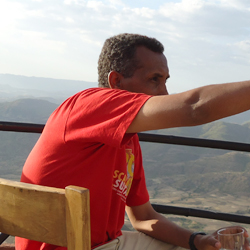
Dr. Endalamaw Gadisa
WP Leader - AHRI
Dr. Endalamaw Gadisa Belachew, Lead Researcher and Acting Directorate Director, Malaria and NTD research directorate.
Born in 1972, Arsi, Ethiopia, Dr. Gadisa holds a Bachelor of Science in Applied Biology and Master of Science in Applied Genetics from Addis Ababa University and he is a Doctor of Microbiology and Parasitology from the Complutense University of Madrid.
Dr. Gadisa worked as forensic biologist at the Ethiopian Federal Police from 1997 to 2001 and as an assistant researcher at the Armauer Hansen Research Institute (AHRI) from 2006 to 2008, then as a postdoctoral researcher from Sept 2012 to 2015, a senior researcher from 2016 to 2018, and lead researcher from 2017 onwards. He is a member of the National NTD Advisory Committee, and the National Malaria Elimination Technical Advisory Committee.
Email: endalamaw.gadisa@ahri.gov.et
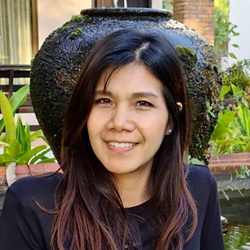
Thoopmanee Kaendiao
Pharmacist
Thoopmanee Kaendiao is a young Thai pharmacist who joined the DPP project as a research associate in July 2021.
She holds a Bachelor’s degree in Pharmaceutical Science from Mahidol University, Thailand, and has been registered as a pharmacist since 2013. She had been working in the Bangkok hospital for five years where she developed skills in pharmaceutical care and operational management.
After years of working in a hospital, she is enthusiastic to work on research, believing that it can provide effective and efficient tools in health care practice.
« As a hospital pharmacist, I appreciate the work that the researchers have done and provided us with knowledge and tools to apply in our health care practice. It helps us to work with more confidence. Knowing the outcome of their efforts, I am inspired to become one of them. »
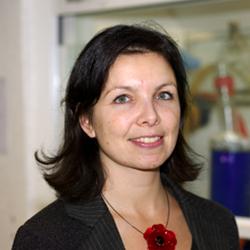
Dr. Tina Kauss
WP Leader - LTPIB
Tina Kauss (PhD, PharmD, HDR) is an Assistant Professor at Bordeaux University, teaching pharmaceutical technology and biopharmacy at the School of Pharmacy. Her expertise includes pharmaceutical formulation development and drug delivery (traditional and nanosystems) of antibiotics and antimalarial drugs in particular. She has worked on drug reformulation for developing countries with World Health Organization (e.g. artemether, ceftriaxone, azithromycin) and has participated in several international projects. Since her arrival in 2016 at ChemBioPharm (ARNA Inserm U1212, CNRS 5320, University of Bordeaux), she has become interested in the therapeutic potential of bioinspired molecules and she has developed new strategies using lipid conjugates of oligonucleotides to tackle antibiotic resistance. She is the author of 27 peer-reviewed international articles, has one patent and one pending patent (ORCID n° 0000-0002-0541-6684). Her multidisciplinary background in the broad field of pharmaceutical development and therapeutic innovations allows her to work in all fields of preclinical therapeutic innovation.
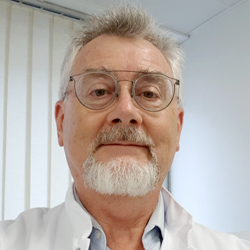
Prof. Pascal Millet
Advisor - UBx
Pascal Millet Ph.D., Retired, formerly Associate Professor – Hospital Biologist, Bordeaux University Hospital.
Currently Administrative member and treasurer of ReMeD (Réseau Médicaments & Développement).
Email: pascal.millet@u-bordeaux.fr
At the end of his PhD, Pascal Millet joined the Centers for Disease Control, Atlanta, GA, USA, as Research assistant, Head of the reference center for imported malaria in USA, and Associate Professor at Emory University, Atlanta GA. He moved to Gabon as Research Director of the Parasitology Laboratory at the Centre de Recherche medical de Franceville (CIRMF). Back to France, he worked for Pierre Fabre Medicaments as Project Leader for malaria, then participated to the creation of the Technology Transfer Office at Bordeaux University Hospital. He was Head of the Incubateur Régional d’Aquitaine, and was elected Associate Professor – Hospital Biologist at Bordeaux University / CHU. As part of his tenure, he was appointed Advisor to the Rector of the University of Health Sciences in Phnom Penh, Cambodia, and then joined the Chembiopharm team (INSERM Unit 1212 – CNRS Unit 5320) in Bordeaux. Pascal Millet has conducted research in parasitic diseases, especially on malaria. He participated in malaria vaccine trials in non-human primates in the USA and Gabon, and established a field study site and directed research projects on malaria, filariasis, and trypanosomiasis in Gabon. At Bordeaux University, he oriented his career towards drug development, and contributed to the development of strategies for the control of neglected diseases. He initiated the development of the antimalarial drug artesunate–amodiaquine (ASAQ®), commercialised by Sanofi. He is author and co-author of 130 peer-reviewed publications.
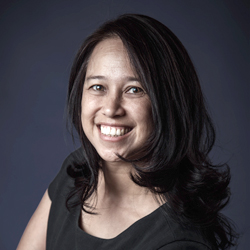
Dr. Julie Nguyen Ngoc Pouplin
Project Leader - ReMeD
Dr. Julie Nguyen Ngoc Pouplin, PharmD, PhD (ORCID 0000-0002-0726-4119)
Julie holds a Pharm D from the University of Strasbourg, France, covering Industrial Pharmacy, Tropical and Infectious diseases and Molecular pharmacology modelling. Following this, she studied for a MSc and PhD at the National Museum of Natural History in Paris; her PhD was on the chemistry and activity of natural products against Plasmodium falciparum. She then went to work at the Oxford University Clinical Research Unit (OUCRU) in Ho Chi Minh city, Vietnam, where she established the Clinical Pharmacology laboratory and ran pharmacokinetic studies. While at OUCRU, she did a second MSc in Experimental Therapeutics in Oxford. Before becoming the DPP project leader, she worked on developing a clinical quality system for the clinical trials support group at MORU, Bangkok.
She brings to the DPP project her substantial experience in drug development and clinical research, covering the spectrum of preclinical work to phase III studies.
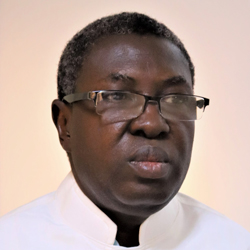
Dr. Alphonse Ouédraogo
Study PI - GRAS
Dr. Alphonse Ouedraogo is a middle career scientist working at the Groupe de Recherche Action en Santé (GRAS). He is a medical doctor who has been working in the field of malaria research for the last 15 years and has co-authored more than 60 manuscripts published in peer-reviewed journals. He has a track record of conducting phase I to phase IV clinical trials in malaria. He is leading currently a team of clinical researchers whose work includes the prevention of malaria (such as malaria vaccines candidate trials as well as epidemiological studies for a better understanding of the dynamics of malaria transmission), antimalarial drug discovery studies, and antimalarial pharmacokinetic pharmacodynamic studies.
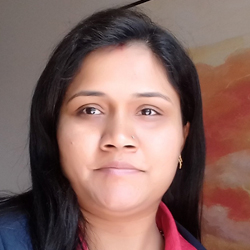
Mrs. Smita Pawar
Project manager - Bilcare
Mrs. Smita Pawar is a Senior Project Manager at Bilcare’s facility in Pune, India, where she has worked since 2006.
She obtained her Bachelor’s in Pharmacy at the University of Pune and holds a Master in Business Administration from Dr. D Y Patil Vidyapeeth, University of Pune.
Smita has broad industry experience over 15 years in the areas of clinical trial supplies, R & D formulation project management, technology transfer, manufacturing and packaging, and supporting dossiers filling for registration globally. She was the main point of contact for two projects with MORU for which Bilcare provided customised packaging for two large placebo-controlled trials of primaquine as radical cure and transmission blocking.
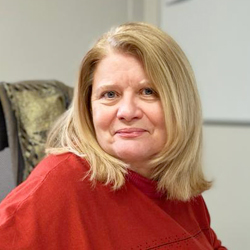
Dr. Anne-Marie Pensé-Lhéritier
WP leader - EBI
Dr. Anne-Marie Pensé-Lhéritier (HDR) is a Professor at Ecole de Biologie Industrielle (EBI) in France. Over the past 20 years, she has developed and worked on a drug sensory panel and has become an international reference for the evaluation of topical products and oral forms.
Her expertise has been recognised by several national drug agencies and she serves an adviser to such organisations. In addition, she has conducted numerous research projects in partnership with industry for pharmaceutical and cosmetic products. She remains active in research to improve the acceptability of medicines by children and is involved currently in several international collaborations.
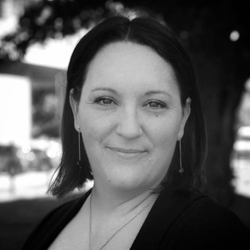
Emilie Poupin
Project Manager - LTPIB
Emilie Poupin holds a Master’s degree in Pharmaceutical Development and Industrial Manufacturing of Health Products. She worked for 15 years in the pharmaceutical industry as a senior technician and thereafter as head of the galenic research and development department. She has worked on many projects and many pharmaceutical dosage forms.
Since 2017, she is an engineering assistant in the faculty of Pharmacy at the University of Bordeaux, France.
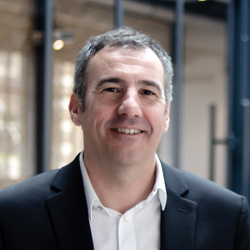
Dr. Fabrice Ruiz
Study Co-PI - ClinSearch
Fabrice Ruiz is the CEO of ClinSearch, a Clinical Research Organization he co-founded in 1999. ClinSearch conducts clinical and epidemiological studies but also develops its own R&D programmes for the analysis of large databases and the modeling of multidimensional concepts. He is also the CEO of Imisca Therapeutics, a start-up founded in 2020 for developing a new treatment in immune-oncology.
From an academic point of view, Fabrice is a member of the board of Ecole de Biologie Industrielle. He is an active member of EuPFI (European Paediatric Formulation Initiative) and is also a member of various expert groups such as Smart Health Strategic Value Chain (European Commission), Health Technology Assessment (Conect4children) and Formulation (Conect4children), and the R2G group of the Assistance Publique des Hôpitaux de Paris which conducts research on galenic and geriatric therapeutic issues.
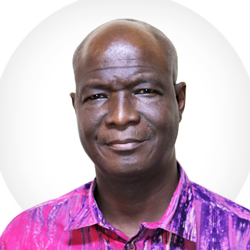
Dr. Sodiomon Sirima
WP Leader - GRAS
Dr. Sodiomon B. Sirima is a Senior Scientist and also the Chief Executive Officer of the Groupe de Recherche Action en Santé (GRAS), a private health research Institute established in 2008, accredited by the Ministry of Science and Technology of Burkina Faso and actively partnering with the Ministry of Health. During these last 25 years, he has led several clinical studies and implementation research activities on infectious diseases including malaria. These studies have generated over 170 scientific peer reviewed publications. He then became at the national and international levels one of the key opinion leaders in the malaria field. His current research interest involves clinical evaluation of new tools for infectious diseases control (such as vaccine candidates and drugs) as well as epidemiological studies.
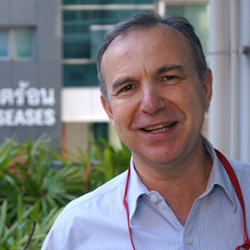
Dr. Bob Taylor
Project Coordinator & Grant holder - MORU
Dr. Bob Taylor, MD (Lond), FRCP (UK), DTM&H (Lond).
ORCID number – 0000-0001-6236-0464
Bob Taylor works currently as a senior clinical research fellow at Oxford University and is also an honorary Consultant Physician in Infectious Diseases for the Oxford University NHS Trust. As a registered specialist in Tropical Medicine, he is a “médecin visiteur aux Hôpitaux Universitaires de Genève.”
His main focus is clinical trials in falciparum and vivax malaria with an interest in the efficacy and safety of primaquine leading to the development of optimised age- and weight-based regimens of primaquine for the transmission blocking of Plasmodium falciparum and the radical cure of P. vivax. He holds several grants for this work and, with Dr. Julie Nguyen Pouplin, secured the EDCTP grant that has led to the birth of the Developing Paediatric Primaquine (DPP) project.
The DPP project aims to prequalify primaquine across a range of tablet strengths so that optimised, child-friendly primaquine regimens can be used in malaria control programmes to eliminate malaria.
Bob qualified in medicine at Guy’s Hospital, London, in 1981 and gained valuable clinical experience in the UK, Zimbabwe, Swaziland (Eswatini), Hong Kong and the USA. His research career started in 1995 when he spent three years in Indonesia running trials on the treatment and prophylaxis of malaria. This was followed by eight years at WHO/TDR managing multicentre clinical trials of artemisinin-based combinations (ACTs) that led to their recommendation by the WHO as first-line treatment for falciparum malaria and the prequalification of artesunate amodiaquine and artesunate mefloquine.
Bob remains clinically active and is registered in the UK as a specialist in Tropical Medicine and “Médecine Tropicale et Médecine des Voyages” in Switzerland.

Dr. Mekonnen Teferi
WP co-leader - AHRI
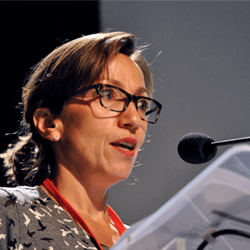
Prof. Catherine Tuleu
Study PI - UCL
Catherine TULEU, Docteur en Pharmacie, PhD, is Professor of Paediatric Pharmaceutics at the UCL School of Pharmacy, UK. Her research (over 100 papers; h = 24; ORCID 0000-0001-8384-357X) is inherently translational and ranges from formulation, process and methodology development to clinical implementation, integrating the following themes: children centric excipient research; reformulation and repurposing for better medicines for children; development of innovative age appropriate dosage forms (especially for under 5s); administration issues (co-administration with food/beverages & aids) and devices; and sensory pharmaceuticsTM (acceptability and in vitro/in vivo taste assessment).
She is the founder and chairperson of the European Paediatric Formulation Initiative (EuPFI), a consortium working on paediatric drug formulations.
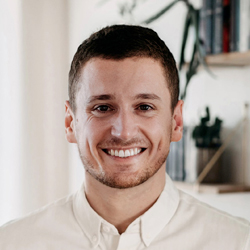
Dr. Thibault Vallet
Study PI - ClinSearch
Thibault Vallet, PhD, is a research scientist and project leader at ClinSearch. He is the co-inventor of CAST – ClinSearch Acceptability Score Test®, a novel data driven approach facilitating medicine design for optimal acceptability in vulnerable populations. CAST is used as part of this EDCTP project aiming to develop a paediatric primaquine formulation. Thibault holds a MSc in sensory science from the University of Lyon, and after working to prevent criminal misuse of psychoactive drugs for the French medicines agency, he joined ClinSearch and started his PhD on medicine acceptability at Arts et Métiers ParisTech in 2014. Seven years later, this innovative research project received a number of prizes and honours, inter alia, from the French Academy of Pharmaceutical Sciences, the French Sensory Science Society and the European Paediatric Formulation Initiative (EuPFI) consortium. As research scientist and project leader at ClinSearch, Thibault coordinates international research projects, and supports pharmaceutical companies in designing and conducting clinical trials and RWE studies in order to demonstrate the acceptability of their medications and meet regulatory requirements. Today, Thibault is analysing meta-data from Japan, India, Norway, Germany, Morocco, and elsewhere. This represents a fresh opportunity to employ CAST to better understand the influence of these different cultures on medicines acceptability.